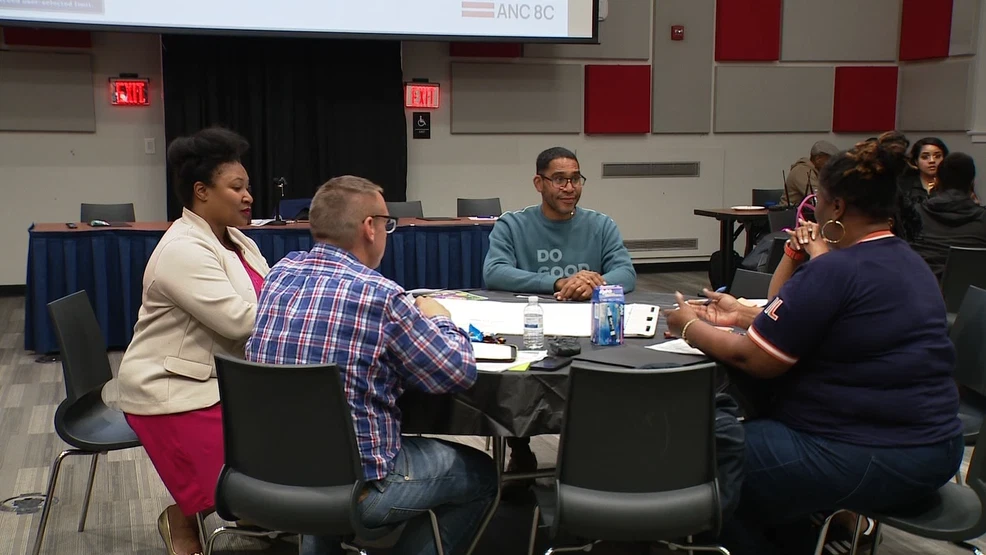
Parents, residents, and community leaders in D.C.’s Ward 8 gathered for a roundtable discussion on truancy and chronic absenteeism plaguing D.C. Public Schools, which public safety leaders have pointed to as a major reason for spikes in juvenile crime.
Truancy is defined as a student with 10 or more unexcused absences during the school year, with or without parental knowledge or consent. Chronic absenteeism occurs when students miss 10 % or more of the school year, both excused and unexcused absences.
“School is school. You’re supposed to be there in the morning,” said ANC Commissioner Tom Donohue during the discussion period.
ALSO READ |
Another resident asked, “Have we made it clear to students why education is relevant?”
According to the , one in four students is chronically absent, and that number jumps to three in four students in some high schools.
ANC Commissioner Gregory White said this issue is personal to him.
“As someone, himself, who was a chronic truant as a child, I understand this can be a very complex issue. There were home issues for me, personally. I think young people are struggling with that. There are challenges with parenting or the quality of parenting. There may be a resource issue. There may be a mental health issue. There may be a transportation issue,” White said. “It’s important to everyone, whether you have a child or don’t have a child because if a child is not in school, that child is somewhere out there in your community and they may be doing things we don’t want young people to do.”
Public safety leaders have attributed juvenile crimes to students skipping school.
Leaders at Wednesday’s meeting also pointed to external factors that may drive truancy and chronic absenteeism.
“It’s a public safety issue, but it’s also an educational issue. We want to make sure our children and our families are attending school,” said ANC Commissioner Salim Adofo. “We know many of our students deal with an exorbitant amount of issues that, sometimes, are not related directly to school. Some students are experiencing homelessness, going from couch-to-couch, sofa-to-sofa. So, being able to have stability in a home where they can get a good night’s sleep. Some have medical issues that they aren’t able to deal with. We know families need support in terms of transportation. Some children are dealing with abuse, whether it be emotional or physical, so they may not want to go to school because they don’t want to get picked on.”
During the meeting, attendees were split up into different tables to discuss possible solutions.
“One of the ideas I had while coming to this is understanding if there’s a truancy protocol,” White said. “A suggestion that came up was stipends where students get a flat stipend, and based on their performance, grades, behavior, and other things, that stipend could be decreased.”
“One [community member] mentioned it takes 30 days of continued absence from school before you’re in danger of failing your grade,” ANC Commissioner Kendall Ridley said. “Missing an entire 30 days of school is too much. One of the recommendations we have is to lower that threshold, say, from 30 days to 10 days, and at 10 days there needs to be some intervention with the family, checking in, seeing what’s going on.”
7News On Your Side reached out to DC Public Schools to ask what actions they’re taking to address students ditching class. We will update this story once we’ve received a statement.
“Just living in this neighborhood and being a leader in this neighborhood, we see children who should be in school, and we’re actively working here with community members to figure out how we can get our students in school, get them the education they need so they can be productive citizens for themselves and for the larger community,” Ridley said. “It takes the will of the community, the will of the people who are in charge – city council, the mayor. We have to fund solutions. We need to understand the problem, fund solutions.”
Adofo added: “None of the things we’ve been doing seem to be working. We don’t necessarily need to start completely over, but we do need to find what some of those successes are.”